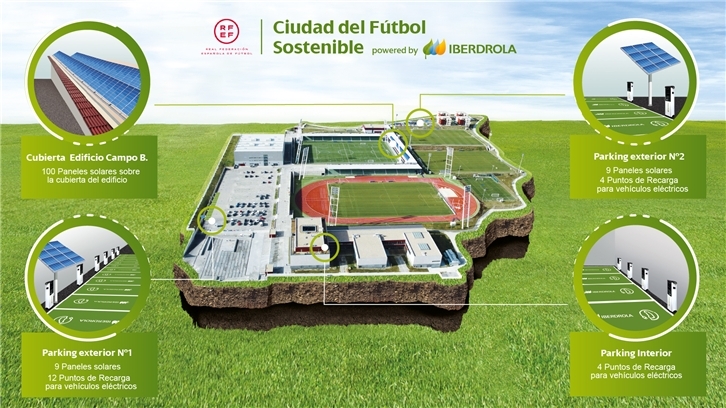News
-
20/05/2021Iberdrola collects solar honey produced in the world's largest photovoltaic hive To mark the United Nations' World Bee Day , Iberdrola has started harvesting the solar honey produced in the world's largest photovoltaic hive. This apiary in Andévalo, in Huelva (Andalusia), is made up of 165 hives occupied by 8 million bees and is improving biodiversity in the surroundings. In collaboration with specialist company Tesela Natura, the energy company has also installed 105 hives with another 5 million bees at its photovoltaic plant in Núñez de Balboa in the region of Extremadura. The project will be replicated in other Iberdrola photovoltaic plants in Spain, to show that introducing pollinators into renewable facilities can improve ecosystem stability and boost crops produced on the surrounding farmland. Photovoltaic power plants are not treated with herbicides or insecticides, because the plants that grow there are controlled by livestock grazing, making them a good habitat for bees. These initiatives also create ecological areas suitable for studying how growing aromatic herbs like eucalyptus, milfoil, rosemary, broom and thyme - improves honey quality. Projects like these allow the company to achieve its goal of improving biodiversity in areas around renewable developments while protecting species like bees, which are responsible for pollinating 80 % of the Earth's plants and 75 % of the food we eat. At the same time, they boost the circular economy, because the honey produced can be sold. The Anévalo solar plant in Puebla de Guzmán (Huelva), prevents the emission of 15,000 tons of CO2 into the atmosphere every year. For several months now, the 100% renewable energy produced there has been decarbonising beer production at HEINEKEN's four breweries in Spain. Likewise, the renewable installation in Nuñez de Balboa, Usagre (Badajoz) has the capacity to supply enough clean energy for up to 250,000 people and avoid emitting 215,000 tons of CO2 a year. Competitive and sustainable energy and environmental balance Iberdrola has fully integrated the conservation of the biological diversity of ecosystems into its strategy, demonstrating that competitive, clean and sustainable energy supplies can effectively coexist with environmental balance. The company plans to achieve “no net loss” of biodiversity by 2030, by committing to the net positive impact of new infrastructure developments. Iberdrola has carried out more than 1,450 measures to protect biodiversity in the last three years alone, combining renewable project development with the conservation of biological diversity of ecosystems and caring for flora, fauna and natural heritage. The company is aligned with the compliance of the Sustainable Development Goals (SDGs) directly related to nature (SDGs 6, 13, 14 and 15) and works to promote economic and social development while respecting the environment . READ MORE
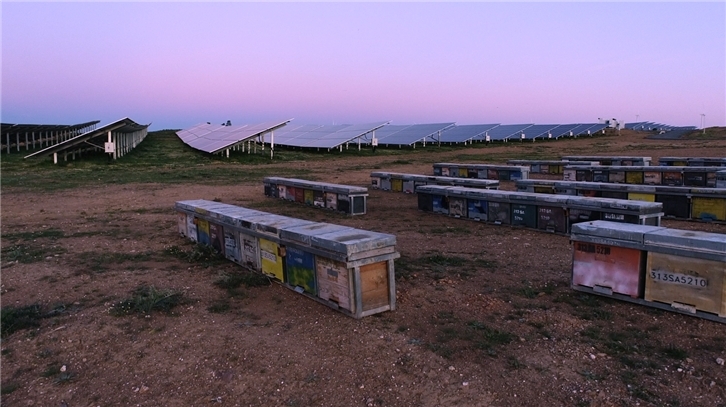
-
19/05/2021Mitsubishi Power and Iberdrola to promote renewable solutions aimed at decarbonizing industry Iberdrola and Mitsubishi Power have signed a collaboration agreement to jointly develop competitive, clean and safe energy solutions based on renewable energy that promote the decarbonization of industrial production in different regions around the world. The alliance between the two companies, world leaders in storage and renewable energy production and equipment, will develop green hydrogen production facilities, battery storage systems and electrified heat production facilities with the aim of promoting carbon neutral industries in the short and medium term. Ken Kawai, President and CEO of Mitsubishi Power, and Aitor Moso, Iberdrola's director of Liberalized Business, have signed this co-operation agreement that will create teams made up of experts from both companies to identify opportunities for large-scale carbon-free renewable energy generation and storage projects for industry, one of the most difficult sectors to decarbonize. Mitsubishi Power President and CEO Ken Kawai said, “Iberdrola and Mitsubishi Power have been collaborating in supporting decarbonization in power generation sector by providing high efficiency GTCC projects. With using this collaborating experience in GTCC projects, we will jointly develop and deploy the necessary hydrogen infrastructure, battery energy storage systems, and electrified heat production systems to decarbonize the power and industrial sectors. This joint development with Iberdrola fulfills our mission to create a future that works for people and the planet by developing innovative power and storage solutions to realize a carbon neutral future.” Aitor Moso, Iberdrola's director of Liberalized Business, explained that "the agreement represents a very important milestone in our strategy of developing alliances with key players in the industrial sector - which is one of the most difficult to decarbonize - allowing us to advance efficient electrification in the short and medium term. With the expansion of renewable solutions such as the electrification of heat, battery storage and green hydrogen in industrial manufacturing processes, we are putting our capabilities at the service of an urgent and common goal: to build a more sustainable and emissions-free economic model, offering development opportunities for industry and employment". The alliance will bring together the capabilities of Iberdrola, one of the world's major clean energy companies and a leader in renewables with an ambitious strategy to promote economic and employment recovery based on green principles; and Mitsubishi Power, a leading supplier of power generation and storage equipment, from gas and steam turbines, generators, electrolysis units, battery storage systems and high temperature heat pumps to steam and solar photovoltaic power generation processes. Green investments to promote economic recovery Iberdrola has been leading the energy transition for two decades, acting as a key driving force in the transformation of the industries and the green recovery of the economy and job creation. The company has launched a major €150 billion investment plan over this decade (€75 billion by 2025), to triple renewable capacity and double network assets while taking advantage of the opportunities offered by the energy revolution that the world's leading economies are facing. Investments worth €120 billion since the turn of the century have made Iberdrola a leader in renewable energy with nearly 35,000 MW installed capacity worldwide, a volume that makes its generation fleet one of the cleanest in the energy industry. With 98 grCO2/kWh emissions, two thirds below the European average, the investment strategy in clean energy and grids will make Iberdrola a "carbon neutral" company in Europe by 2030. READ MORE
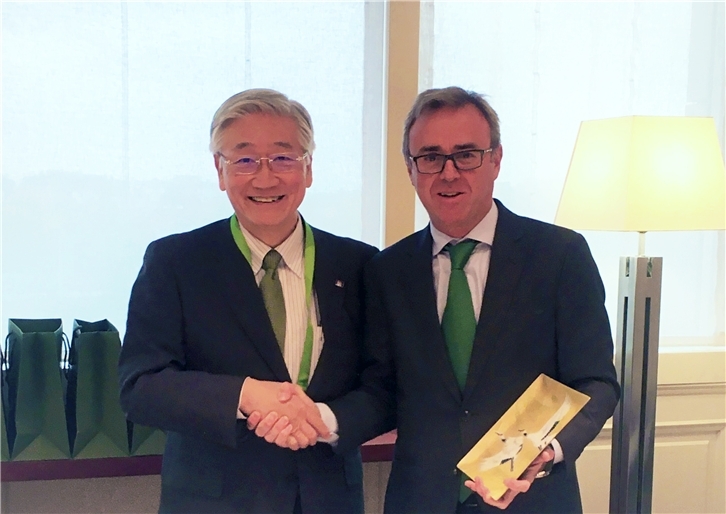
-
19/05/2021Iberdrola is planning the Y Basque Green Hydrogen Project to electrify heavy transport in the Basque Country Iberdrola is planning the Y Basque Green Hydrogen Initiative: a corridor that entails building three hydrogen generation plants in the logistical centres of Vitoria/Júndiz, Bilbao and Pasaia for the purpose of facilitating the decarbonisation of heavy road transport, buses and light industrial vehicles, as well as for port and airport use in the region and in the chemical industry. The project, which will be for public use, will be modular and expandable, will involve an investment of more than 37 million euros and include the construction of electrolysers with a 10-MW capacity, to produce a total of 4,000 kg/day of green hydrogen, as well as on-site photovoltaic plants for self-consumption which, added to the renewable energy supplied by Iberdrola, will allow these facilities to supply 100% renewable, emission-free energy. The initiative also envisages the incorporation of energy storage equipment, in the form of smart batteries, to accumulate the surplus photovoltaic production not consumed by the plants, in order to feed it into the grid or use it for hydrogen production at optimal times. The project has been submitted to the EU Next Generation programme and has the institutional support of the Basque Government, the Provincial Councils of Araba, Bizkaia and Gipuzkoa and Vitoria-Gasteiz City Council, as well as the ports of Bilbao and Pasaia. It is also supported by Basque businesses or those operating in the Basque Country, such as Acotral, Aena, Alsa, Avanza, CAF, Disfrimur, Irizar, Lascaray, MFS, PepsiCo, Primafrío, Solaris, Tecniruta, Transportes Mazo, 686 Transportes Logísticos y Portuarios and Transportes Saavedra. “These developments will contribute to creating a cross-sectoral project to drive a sustainable industrial model based on green hydrogen. It should also reduce national energy dependence as it is based on renewable energy produced with domestic resources and will boost synergies between the logistics, energy and industrial sectors", explains Millán García-Tola, Iberdrola's global hydrogen director. It should also allow progress towards greater airport-port-city integration, fostering green hydrogen-powered mobility and generating technical/scientific knowledge. Development of the local value chain around hydrogen The project should generate 1,700 direct and indirect jobs during its construction and operation, as well as contracting services and purchases from more than 30 local suppliers. To develop the project, Iberdrola has collaborated with a group of 30 Basque companies, which will take part in this initiative in their different specialist areas. The supplier value chain includes the following companies: ABC Compresores, Ampo, Arteche, Babcock Valves, Bético, Boslan, Calderería Mañez, Consonni, EIA Ingeniería Soluciones, Elecnor, Emica, Goizea, Hidroambiente (grupo Elecnor), Idom, Indar, Inecosa, Ingeteam, Iointek, Jema, Ksb, Mesa, Ormazabal, Pine, Schneider Electric, Tambora, Tamoin, TMC, Torralval, Tubos Reunidos and ZIV. The project will join those presented by Iberdrola in Zaragoza and the Mediterranean Corridor, and the one being operated by the company in Zona Franca de Barcelona (Free Zone), where it will install and exploit a hydrogen plant for ten years to fuel buses run by Transports Metropolitans de Barcelona (TMB) and other fleets and industries on the industrial estate. The Y Basque Green Hydrogen Project is one of 175 projects the company has either presented to the EU's Next Generation programme or which are already included in the programme. These projects could mobilise investments of 30 billion and involve more than 350 small- and medium-sized companies in Spain, generating more than 60,000 jobs a year. These projects include 53 initiatives related to hydrogen, which could activate investments of 2.5 million to achieve an annual production of 60,000 tn/year. Green investments to promote economic recovery Iberdrola has been leading the energy transition for two decades, acting as a key driving force to transform the industrial fabric and in the green recovery of the economy and employment. The company has thus launched a historic investment plan with a value of 150 billion euros over the next decade, 75 billion euros by 2025, to triple its renewable capacity and double network assets and take advantage of the opportunities offered by the energy revolution that the world's leading economies are facing. In Spain, investments to 2025 amount to 14.3 billion euros, mainly for the deployment of an ambitious plan for renewables and smart grids. In Spain, it is the leader in the renewable sector with an installed capacity of 16,700 MW, which will increase to 25,000 MW with its investment plan up to 2025. Investments worth 120 billion euros over the last twenty years has made Iberdrola a leader in renewable energy with nearly 35,000 MW installed worldwide, a volume that makes its generation fleet one of the cleanest in the energy sector. With emissions of 98 gCO2/kWh, we are already two-thirds lower than the European average, and the strategy of investing in clean energy and networks will lead Iberdrola to be a “carbon neutral” company in Europe by 2030. READ MORE
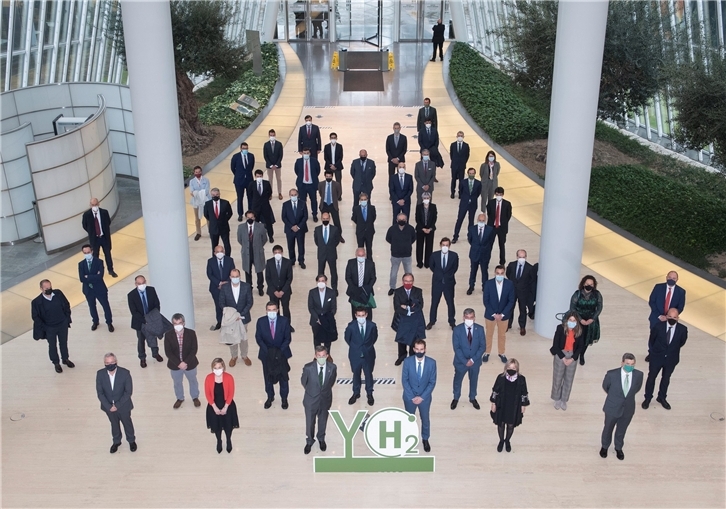
-
18/05/2021Iberdrola and 50Hertz sign construction agreement for Baltic Eagle offshore substation Iberdrola and 50Hertz, the transmission system operator responsible for connecting the Offshore Windfarm to the grid, have signed an agreement to cooperate with regard to the construction, installation and commissioning of the offshore substation (OSS) for Baltic Eagle wind farm being developed in German waters of the Baltic Sea . The jointly used offshore substation will house the technical equipment collecting the electricity produced by the wind turbines and will connect to the onshore transmission grid in Lubmin. Iberdrola has further awarded contracts to the joint venture Iemants-Fabricom, responsible for the manufacturing of all structural elements of the substation, and to marine contractor Heerema, who will transport and install the substation on the Baltic Eagle site. Siemens Gas and Power is responsible for the delivery of all main electrical equipment for Iberdrola`s low-voltage part of the OSS. The substation is made up of a foundation and a topside housing the transformers as well as electrical equipment. The four-legged steel jacket foundation weighs approximately 2,900 tonnes and will be fastened with two hammered piles at each leg. The topside consists of a closed multi-storey module of 5 decks with a total estimated net weight of around 4,250 tonnes. Fabrication is already progressing at different locations in Europe and platform manufacturing has already started at Belgian yards. Sail out to the site is planned for 2022, while completion of the offshore installation and commissioning is expected to take place in 2023. When the Baltic Eagle wind farm is connected to the grid, the wind turbines will deliver electricity via the inter-array cables to the offshore substation where it is then transformed from 66 kV to 220 kV and transmitted via two high voltage subsea cables across the 90 km distance to the landing point at Lubmin. The substation is one of the key elements of the windfarm, tasked with collecting and exporting the entire electricity produced by 50 wind turbines –estimated to account for ca. 1.9 TWh per year. With this energy production it will be possible to sustainably meet the demand of 460,000 homes and to avoid the emission of 800,000 tonnes of CO2 into the atmosphere each year. The Baltic Eagle offshore wind farm is located northeast of the Rügen island off the Pomeranian coast in the Baltic Sea in a water depth of 40-45 meters. Iberdrola was awarded 476 MW of capacity during the transitional auction held in 2018. The wind farm will comprise 50 wind turbines of 9.525 MW capacity to be installed on monopile foundations and will cover an area of 40 km2. Commissioning is expected in 2024. A European project fostering industrialization and job creation Iberdrola and 50Hertz once again confirm their commitment to the energy transition and to sustainable growth in the European Union with the creation of important jobs across the whole value chain while helping to reindustrialize and modernize shipyard facilities. The combined capacity of 826 MW from Wikinger and Baltic Eagle offshore windfarms underline that investments in renewable energy help to establish sustainable industry with significant growth potential, coupled with the creation of high-quality jobs for German and European companies. READ MORE
-
17/05/2021Iberdrola reinforces its commitment to renewable energy in the Canary Islands, with the Aulagas wind farm Iberdrola reinforces its commitment to the renewable energy market in the Canary Islands, after winning 11 % of the total power auctioned in Santa Cruz de Tenerife in the bidding process for wind power capacity endowed with ERDF funds (Eolcan2). The company will develop the Aulagas wind farm in Granadilla de Abona, with a total installed capacity of 10.5 MW, made up of 4 wind turbines each with a power of 2.6 MW. The project has an Environmental Impact Statement (EIS) and its commissioning is scheduled for the end of 2022. The construction and development of Aulagas will contribute to promoting the group's renewable energy strategy in the Canary Islands, boost employment in the area and reduce the energy cost overruns caused by the unique nature of the island territories. In the Canary Islands, Iberdrola has been operating the Chimiche wind farm in Tenerife since 2019. With a capacity of 18.3 megawatts (MW) and an investment of more than 25 million euros, the project generated more than 200 jobs during its construction. The park supplies clean energy to an equivalent population of 15,000 homes, preventing the emission of 33,000 tons of CO2 per year. In March 2021, Iberdrola reinforced its commitment to renewables in the region, after securing 36 % of the total power auctioned in Fuerteventura, where it will develop the Huriamen I and Huriamen III wind farms, of 6 MW and 15 MW, respectively, and another 15.5 MW of photovoltaic plants, Llanos Pelaos I, II, III and Blanca Solar, jointly promoted with Ingeniería y Aplicaciones Solares (Lasol) and Energy Projects & Investment Capital (Energy Capital). Green investments to promote economic recovery and employment Iberdrola is certain that the energy transition can be a driving force in the transformation of the industrial sector and for a green recovery in the economy and the job market. The company has thus launched a historic investment plan with a value of 150 billion euros over the next decade, 75 billion euros by 2025, to triple its renewable capacity and double network assets and take advantage of the opportunities offered by the energy revolution that the world's leading economies are facing. Investments in Spain amount to around €14.3 billion for 2025, half of which (more than €7 billion), will be spent on developing renewable energy projects. After twenty years promoting the energy transition, Iberdrola is a leader in renewable energy with nearly 35,000 MW installed; a volume that makes its generation fleet one of the cleanest in the energy sector. With emissions of 98 gCO2/kWh that are already two-thirds lower than the European average, the strategy of investing in clean energy and networks will lead Iberdrola to be a “carbon neutral” company in Europe by 2030. READ MORE
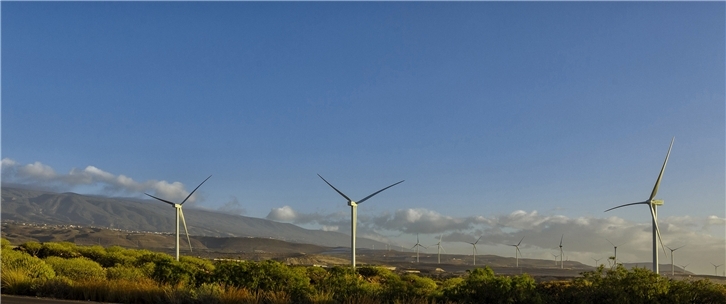
-
13/05/2021AVANGRID, Iberdrola’s controlled subsidiary in the U.S., has issued a capital increase of $4,000 million AVANGRID will issue an aggregate of $4,000 million of common stock in a private placement transaction at $51.40 per share, the closing price as of 11th May 2021. Iberdrola will subscribe $3,260 million proportionally to its current 81.5% participation and Qatar Investment Authority (“QIA”) will subscribe the additional $740 million acquiring approximately 3.7% of AVANGRID common stock. This transaction will reinforce the strategic partnership between Iberdrola and QIA. Mansoor Al-Mahmoud, Chief Executive Officer of QIA said: “We are delighted to strengthen our strategic partnership with Iberdrola through our investment in AVANGRID. We share a common vision with Iberdrola for a low-carbon future. AVANGRID is a high-quality utility and a leader in renewables in the U.S. market, with strong growth potential. Our investment in AVANGRID is a further demonstration of QIA’s strategy to increase the size of our U.S. portfolio, as well as our commitment to support decarbonisation through environmental and social impact investments.” Dennis V. Arriola, AVANGRID’s CEO said: “The significant investments by Iberdrola and QIA demonstrate strong confidence in AVANGRID’s strategy and will help fund our journey to becoming the leading sustainable energy company in the U.S.” A portion of the proceeds of this capital increase will fund AVANGRID’s proposed merger with PNM Resources, Inc., and pay off the intra-group loan agreement with Iberdrola, which provided AVANGRID with an unsecured subordinated loan in an aggregate principal amount of $3 billion. A portion of the proceeds of this capital increase will also be contributed to fund AVANGRID’s investment plan, financing its announced future growth with over $20 billion of organic investments through 2025. AVANGRID’s investment plan will be focused on regulated and contracted investments that generate predictable earnings and growing cash flows in networks infrastructures. Projects will include the contracted transmission line NECEC and power grid modernization, as well as in renewable energy - mainly contributing to offshore wind development in the U.S., with projects such as Vineyard Wind and Park City Wind and investments in onshore wind and solar projects. READ MORE
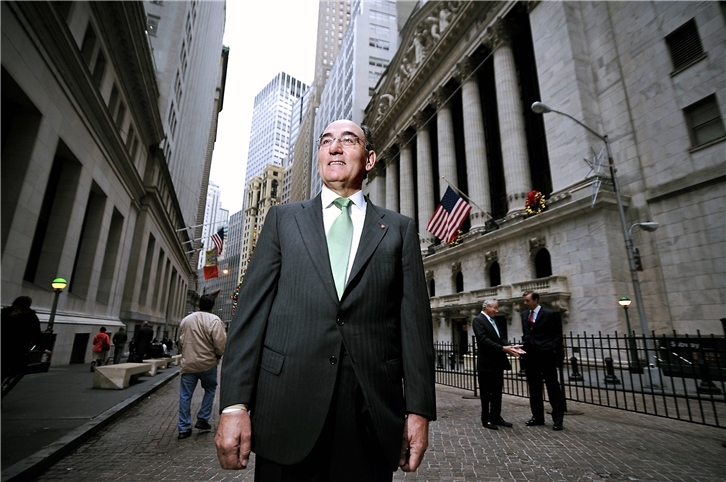
-
13/05/2021Iberdrola is looking for collaborative solutions to combine agriculture and livestock farming in photovoltaic plants Iberdrola takes another step forward in its commitment to preserve the biodiversity of the surroundings of its renewable energy projects. To this end, the company has launched a new challenge – through its international start-up programme PERSEO – to identify competitive and innovative solutions to combine solar photovoltaic generation plants with activities related to agriculture, horticulture, livestock raising, fish farming and beekeeping, in order to improve the use of the land. The energy company is seeking innovative solutions that allow for complementarity and the creation of synergies between land used for primary sector activities and solar photovoltaic installations, so that the local economy can be boosted. This is known as agrovoltaics . The projects are particularly focused on regions that are addressing the demographic challenge, while continuing to fight climate change and supporting the energy transition. The assessment of the proposals will take into account the costs, the maturity and suitability of the project, the diversity of crops that can be planted, the positive impact on agricultural or livestock productivity and the degree of digitisation of the proposal to optimise efficiency, as well as other variables. Proposals may be submitted up to and including 10 June and the winner will be announced in September. Project support Iberdrola will provide the winner of the challenge with technical and financial support to test its solution. In addition, it will provide technical support to test its solution, giving it access to the resources necessary to validate it (equipment, teams, infrastructures, high-tech sites and co-working areas), as well as offering a real environment and real data to test the solution. If the pilot project is successful, Iberdrola may also offer the participant the opportunity to scale up the solution by adopting it through commercial agreements and PERSEO may even consider investing in the company that wins the challenge. Competitive and sustainable energy and environmental balance Iberdrola has fully integrated the conservation of the biological diversity of ecosystems into its strategy, demonstrating that competitive, clean and sustainable energy supply can effectively coexist with environmental balance. The company plans to achieve “no net loss” of biodiversity by 2030, by committing to the net positive impact of new infrastructure developments. Iberdrola has carried out more than 1,450 actions to protect biodiversity in the last three years, combining the installation of renewable projects with the conservation of the biological diversity of ecosystems, looking after flora, fauna and natural heritage. The most recent project was the installation of beehives in photovoltaic projects to preserve biodiversity and promote the circular economy. The company is aligned with the compliance of the Sustainable Development Goals (SDGs) directly related to nature (SDGs 6, 13, 14 and 15) and works to promote economic and social development while respecting the environment . Perseo: more than 10 years of innovation PERSEO, Iberdrola's international start-up programme, aims to facilitate the group’s access to the technologies of the future and foster the creation and development of a global and dynamic ecosystem of technology companies and entrepreneurs in the electricity sector. For this, in addition to the 70 million euros allocated to the initiative, a further 40 million euros have now been allocated to launch, through its Perseo Venture Builder unit, innovative industrial companies working in new areas of electrification and in sectors that are difficult to decarbonise. Since its creation in 2008, PERSEO has invested 70 million euros in start-ups that develop innovative technologies and business models, focusing on those that improve the sustainability of the energy sector through greater electrification and decarbonisation of the economy. The programme has focused its actions on analysing business opportunities and technological collaboration with start-ups and emerging companies around the world, analysing 300 companies each year and creating an ecosystem of almost 3,000 entrepreneurial companies. This investment instrument currently has a portfolio of eight companies. READ MORE
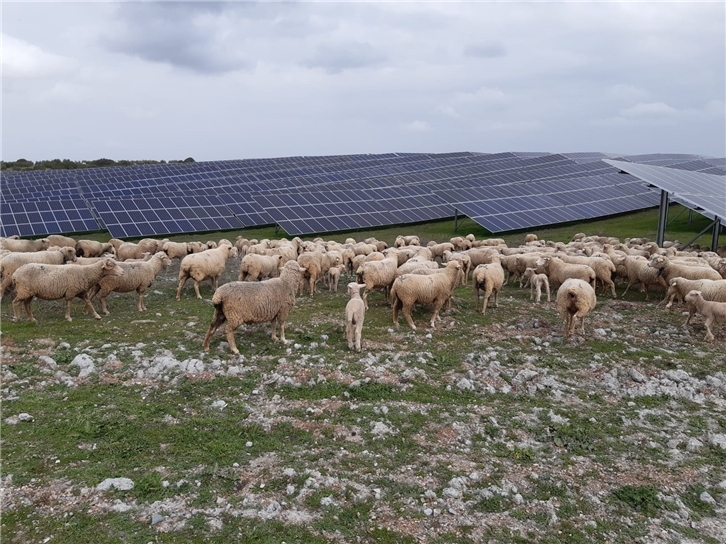
-
12/05/2021Iberdrola and the Spanish Football Federation (RFEF) are the driving force behind the first Sustainable Football City Iberdrola and the Spanish Football Federation (RFEF) have signed a collaboration agreement to promote the first Sustainable Football City at the training facilities of the Spain's national football teams in Las Rozas, Madrid. The agreement will enable the installation of a self-consumption system comprising 110 photovoltaic solar panels on roofs and canopies that will allow the matches of the different national football teams to be illuminated with renewable energy. The output of this installation is equivalent to the annual consumption of 30 households and will prevent the emission of 22 tCO2/year. The facilities will also be equipped with 20 charge points for electric vehicles to promote sustainable mobility among athletes and fans. Any electric vehicle user who visits the facilities will be able to make use of these charge points with the guarantee of using 100% green energy from clean generation sources. The electric charge points will be available on the ‘Recarga Pública Iberdrola’ mobile app, the only one that includes verified information on all electric vehicle chargers in operation in Spain and which can be used to manage the geolocation of the charger, reserve it and pay for charging from a mobile phone. “At Iberdrola we have been committed to promoting women’s sport for years with the belief that, through our actions, we are fighting for equal opportunities. But with partnerships like today’s we are going one step further by extending the transformation capacity of our sustainable activities to the field of sport. Making Ciudad del Fútbol the first sustainable sports city allows us to demonstrate the extraordinary impact of an energy model that, like sport, plays fair, is competitive and sustainable and offers inclusive opportunities for all”, explains Juan Luis Aguirrezabal, Iberdrola’s Director of Advertising, Brand and Global Sponsorships. "This initiative allows us to broaden our commitment to the Sustainable Development Goals. The Spanish Football Federation is delighted to be able to develop the Iberdrola Sustainable Football City project at the home of Spanish football”, said Rubén Rivera, marketing director of the RFEF. This new agreement extends that signed by both entities on the occasion of the Women’s World Cup in France in 2019, which has made it possible to promote the first Sustainable National Team through initiatives such as offsetting the carbon footprint generated by the Spanish Women’s Football Team with green energy. Iberdrola, a pioneer in promoting women's sport Promoting women's sport has become a key ambition for Iberdrola, and the promotion of true equality between men and women one of its essential values. In 2016, Iberdrola became the first company to make a firm and global commitment to women's equality and empowerment through sport. Currently, the company supports 16 federations and their respective leagues: gymnastics, triathlon, rugby, canoeing, badminton, football, handball, volleyball, hockey, table tennis, athletics, karate, boxing, surfing, ice sports and fencing. Iberdrola also lends its name to 22 national top-tier sports leagues, and 35 other competitions. At the same time, the provision of resources, facilities, medical services and referees, as well as support and sponsorship for different initiatives in this field from Iberdrola has not only helped to increase the number of federated sportswomen in these disciplines by 39% (reaching over 300,000), but is also allowing Spanish elite sportswomen who have built their sporting career in other countries to start competing again in Spain, leading to an improvement in the standard and visibility of national competitions. READ MORE
